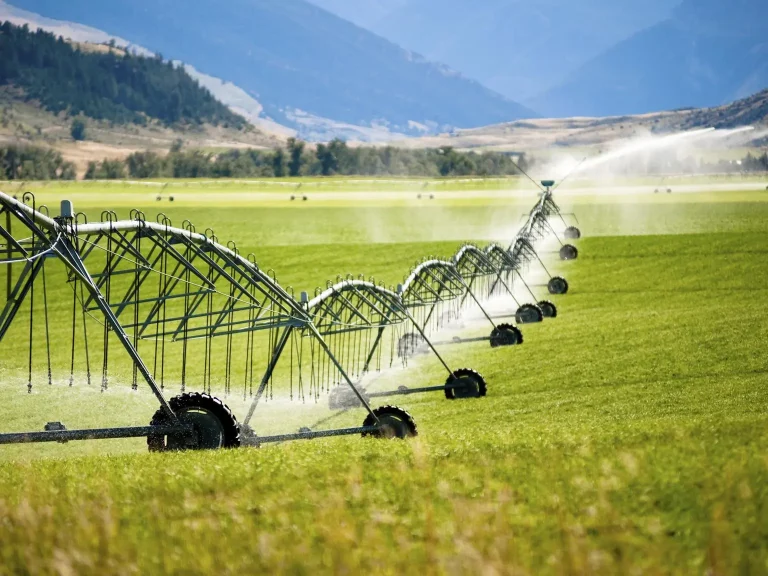
Effective water management for sustainable farming balances a farm’s water needs with nature’s requirements. By integrating conservation principles and efficiency, farmers can optimize water usage and enhance crop health. Tools like drip irrigation provide water precisely where and when needed, maximizing efficiency. Flow meters and soil moisture sensors further improve this precision by allowing farmers to monitor and adjust their irrigation practices based on real-time data.
Farmers can also conserve water by enhancing their soil’s water-holding capacity. Techniques such as conservation tillage keep the soil covered, reducing water loss through transpiration and evaporation. By incorporating organic matter into the soil, farmers can significantly improve its structure and increase its ability to retain moisture.
A one percent increase in soil organic matter can enable the soil to retain an additional 20,000 gallons of water per acre, ensuring that plants have access to this vital resource during critical growth periods.
Water Quality
Maintaining water quality is essential for sustainable farming practices. Well-managed organic systems rely on slow-release forms of nutrients that minimize the risk of nutrient runoff and leaching. These practices not only support healthy crops but also protect water sources.
Enhanced soil structure and better nutrient retention help maintain clean water systems. Farmers can implement nutrient management plans, cover crops, and buffer zones to keep soil and nutrients in place, filtering runoff water effectively.
By prioritizing water management for sustainable farming, farmers can ensure that their practices benefit both their crops and the environment. Implementing these strategies creates a more resilient agricultural system that can withstand the challenges posed by climate change and other environmental stressors.


